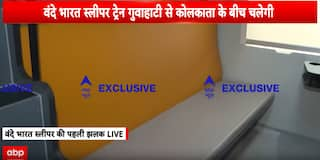Shared Mobility And Bike Taxis: Eco-Friendly Solutions To India’s Traffic Woes

Limiting the use of private vehicles and encouraging shared mobility can reduce urban passenger carbon footprints and improve public transportation systems. On Mondays, commuting to the office by car is a nightmare, at least for me, and so I started opting for public transport like taking the metro. In doing so, I realised that for last-mile connectivity, bike taxis are playing a vital role, as they are affordable and quick. With a laptop bag, I don’t need more than a two-wheeler.
Shared mobility and bike taxis are emerging as popular solutions to the problem of increasing carbon footprint and traffic issues in India, just like in other countries around the world. With rapid urbanisation and population growth, Indian cities are becoming increasingly congested, leading to traffic gridlocks and air pollution. The traditional modes of transport, such as private cars and two-wheelers, have become unsustainable and there is a need for new, innovative solutions to address these challenges.
As per a World Bank report, around 56 per cent of the world’s population (4.4 billion people) reside in cities. Whereas another report has shown that India’s urban population is believed to go up to 675 million by 2035. Such a massive rise in population will require a robust transportation system second to none. It is one of the reasons why we need app-based mobility. It is affordable and flexible.
Shared mobility is a transportation model where people share vehicles for commuting, reducing the number of cars on the road, and hence reducing traffic congestion and carbon footprint. Shared mobility includes carpooling, ride-sharing, bike-sharing, and bike taxis. Bike taxis, in particular, are gaining popularity in India, with several startups providing these services in major cities.
Bike taxis are a form of on-demand transportation where people can book a bike ride using a smartphone app, just like booking a ride on a ride-hailing app. Bike taxis are especially suitable for short trips and can help reduce congestion and carbon emissions by taking cars off the road.
Let's discuss how shared mobility and bike taxis can resolve the problem of increasing carbon footprint and traffic issues in India and how the government can encourage this mode of transport.
Reducing The Number Of Cars On The Road
Carpooling and ride-sharing, for example, can help reduce the number of cars on the road, thereby reducing traffic congestion and carbon emissions. Bike taxis, similarly, can help reduce the number of cars on the road, as people can use them for short trips, rather than driving their cars.
In India, several bike taxi aggregators are providing services in major cities. Startups offer affordable and convenient transportation options to people, especially for short distances. In addition to these aggregators, several ride-hailing companies have also launched bike taxi services in India, contributing to the growth of the shared mobility sector in the country.
Increasing Utilisation Of Vehicles
Private cars and two-wheelers are often used for short trips, with only one or two riders. By sharing rides, vehicles can be utilised more effectively, which means fewer cars on the road, hence reducing traffic congestion and carbon emissions.
In India, carpooling and ride-sharing services are also gaining popularity. Several ride-sharing aggregators are helping people share rides and reduce the number of cars on the road. These services are becoming popular among office-goers and students, who travel similar routes and can share rides, reducing their transportation costs, and carbon footprint.
Providing Affordable Transportation Options
Shared mobility, including bike taxis, can provide affordable transportation options for people who may not be able to afford their own vehicle or who do not want to deal with the expenses associated with owning a car.
Bike taxis, in particular, are an affordable option for short trips, and they can also be more convenient.
(The author is a former journalist and a brand & communication consultant)
Disclaimer: The opinions, beliefs, and views expressed by the various authors and forum participants on this website are personal and do not reflect the opinions, beliefs, and views of ABP Network Pvt. Ltd.


























